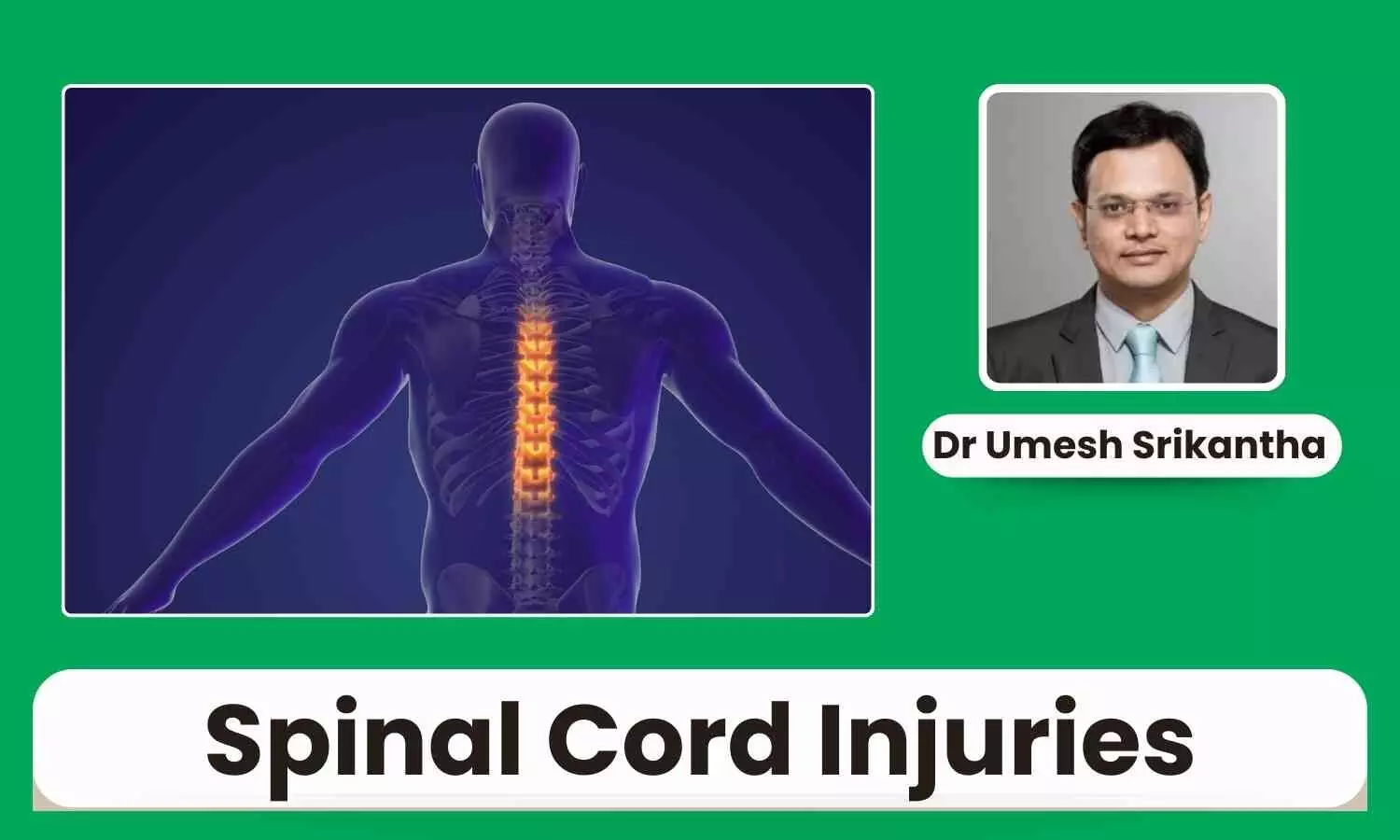Breaking Down Spinal Cord Injuries: A Comprehensive Guide - Dr Umesh Srikantha

Spinal cord injury (SCI) refers to damage to the spinal cord resulting from trauma or disease, which can lead to permanent changes in strength, sensation, and other bodily functions below the site of injury. This condition can significantly impact an individual's quality of life, necessitating a comprehensive understanding of its causes, symptoms, diagnosis, treatment, and prevention.
How Common are Spinal Cord Injuries?
Spinal cord injuries are relatively common, with an estimated 20,000 new cases occurring in the India each year. The incidence is highest among young adults aged 16 to 30, primarily due to vehicular accidents, falls, and sports-related injuries.
Symptoms
Symptoms of spinal cord injury can vary widely depending on the severity and location of the injury. Common symptoms include:
- Loss of movement or sensation in limbs
- Difficulty breathing or coughing
- Loss of bladder or bowel control
- Pain or tingling sensations
- Changes in sexual function
Causes
The causes of spinal cord injuries can be categorized into traumatic and non-traumatic.
Traumatic causes include:
- Motor vehicle accidents
- Falls
- Sports injuries
- Violent acts (e.g., gunshot wounds)
Non-traumatic causes include:
- Diseases (e.g., multiple sclerosis, spina bifida)
- Infections
- Tumours
Prevention
Preventing spinal cord injuries involves various strategies aimed at reducing risk factors. Key prevention measures include:
- Wearing seat belts and helmets during activities like driving or biking.
- Implementing safety measures in the workplace and at home to prevent falls.
- Participating in safe sports practices and using appropriate protective gear.
- Educating individuals about the dangers of risky behaviours, particularly among young adults.
Diagnosis or Tests
Diagnosing a spinal cord injury typically involves a thorough medical history and physical examination, followed by imaging tests. Common diagnostic tools include:
- X-rays: To check for fractures or dislocations.
- CT scans: To provide detailed images of the spine.
- MRI scans: To assess soft tissue damage and spinal cord condition.
- Neurological examinations: To evaluate sensory and motor function.
Complications
Spinal cord injuries can lead to a range of complications that can further impact health and quality of life, including:
- Pressure sores
- Respiratory complications
- Urinary tract infections
- Deep vein thrombosis (DVT)
- Psychological issues, such as depression and anxiety
Treatments
Treatment for spinal cord injury is multifaceted and may involve immediate care as well as long-term rehabilitation. Initial treatment aims to stabilize the injury and may include:
- Medication (e.g., corticosteroids) to reduce inflammation
- Surgery to decompress the spinal cord or stabilize the spine
Rehabilitation often includes:
- Physical therapy to improve mobility and strength
- Occupational therapy to assist with daily activities
- Psychological support to address emotional well-being
- Use of assistive devices to enhance independence
Spinal cord injuries represent a significant health challenge that affects individuals, families, and communities. While the impact can be devastating, advancements in medical research, rehabilitation, and assistive technologies continue to improve outcomes for those affected.
Awareness, prevention, and timely intervention remain crucial in addressing the complexities of spinal cord injuries, paving the way for better management and enhanced quality of life for individuals living with this condition.


